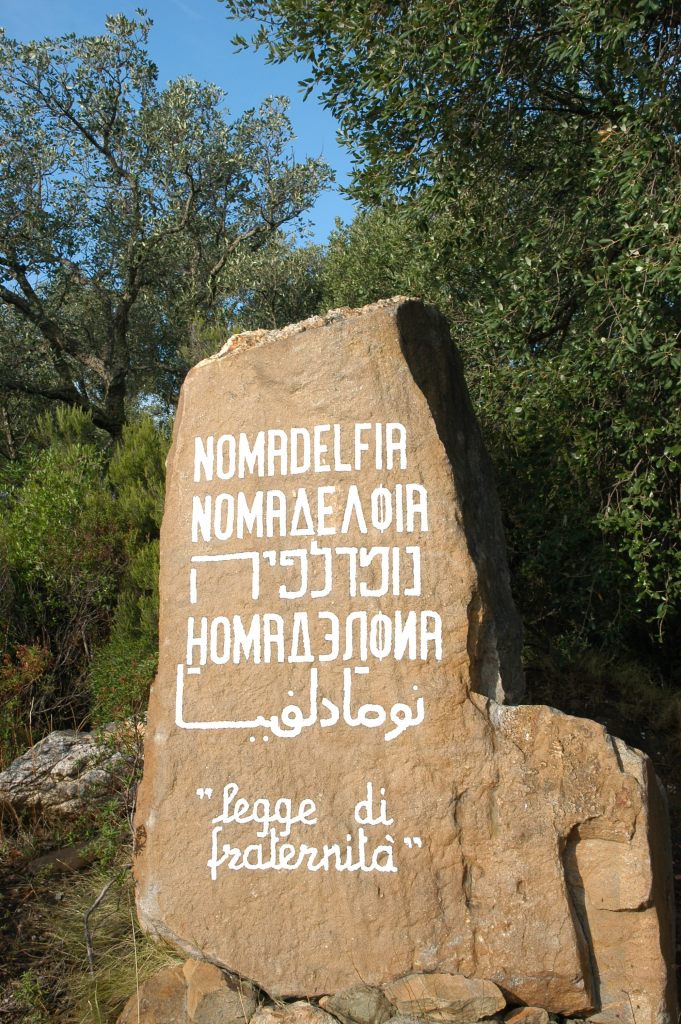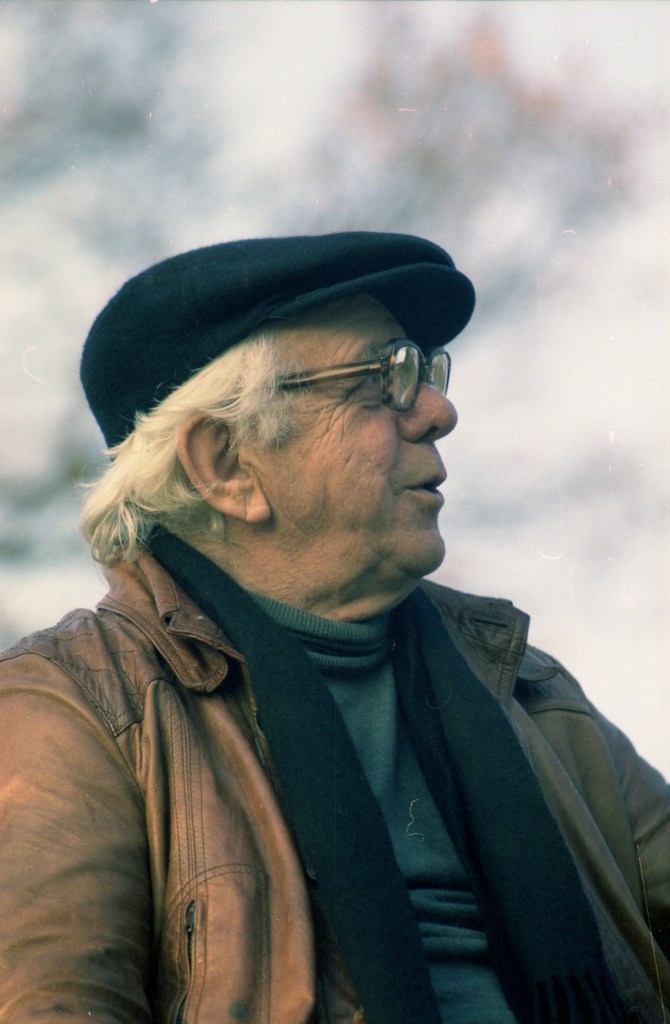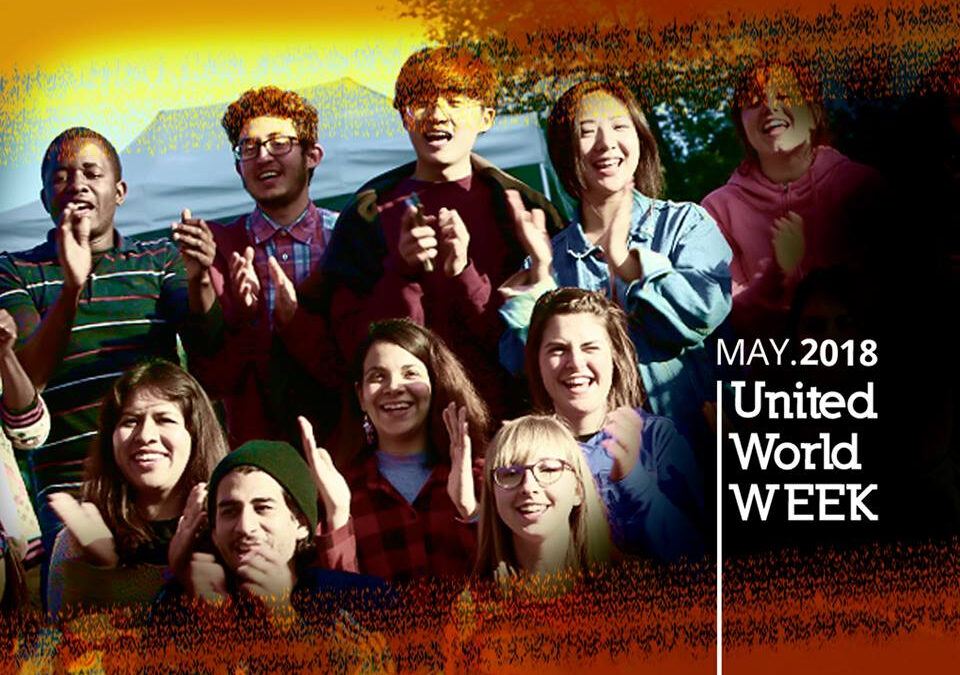
Month of May focuses on youth
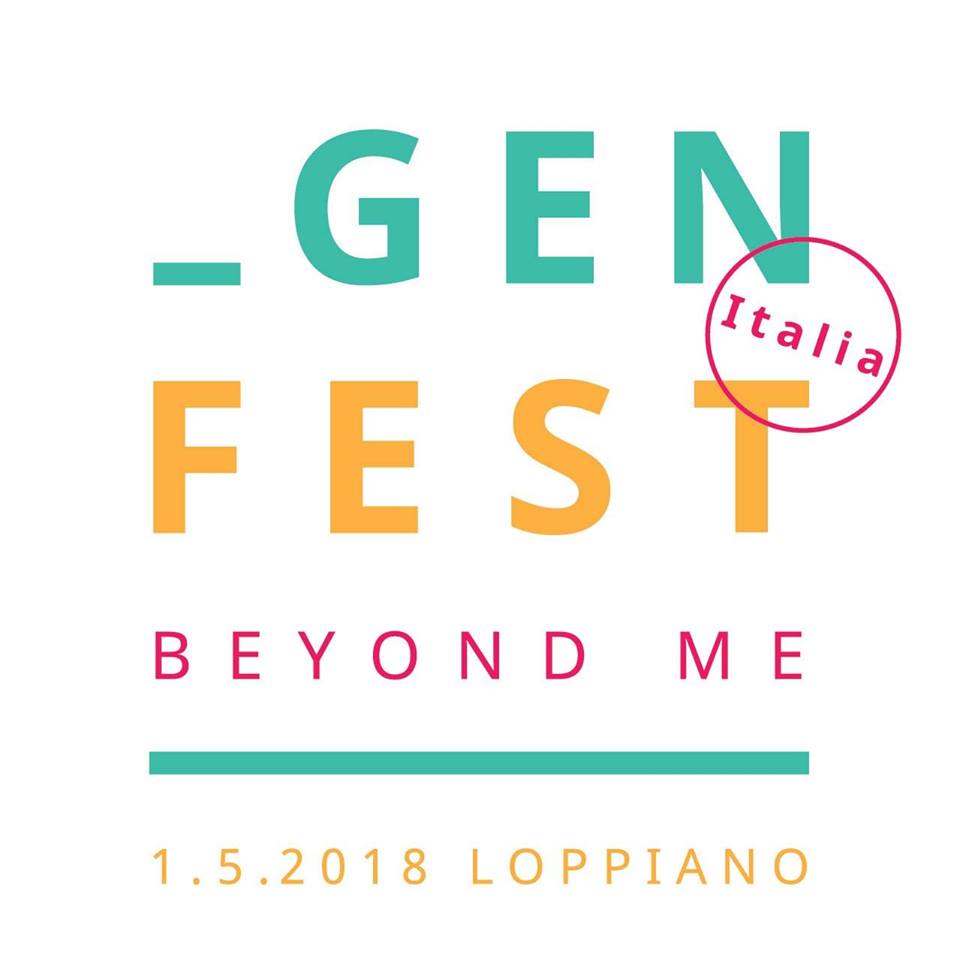 Zooming in on the young. Once again this year United World Week will be launched from the Focolare’s little town of Loppiano, Italy. Events will include a global network of projects marked by the spirit of brotherhood among peoples from a variety of cultures. This event has been held for over twenty years by the young members of the Focolare Movement who wish to bear witness not only to their peers, but also to public institutions that the dream of a united world has not been crushed by war or underneath the weight of social injustice – especially if the new generations who have been formed in a culture of peace are the ones taking the reins of society in their own hands. On May 1st, the Italian Focolare town will host one of the many “national” events in advance of the Genfest that will be held this year in Manila, Philippines (“Beyond all Borders, July 2018), and assemble 3 thousand young people from all over the world. It will be a festival to talk about the most difficult border to overcome when reaching out to others: oneself. “Beyond Me” will tell the stories of people who have wanted to bring about a change, beginning with themselves, stepping out of their comfort zones, to open themselves to such values as solidarity and to the needs of the people around them. For many of the young people, this experience of openness deepens its roots into a personal encounter with God, which has transformed their lives and allowed them to overcome their fears. For others, it has been overcoming an illness or disability or taking notice of someone else’s need. In name of a great friendship with the community of Nomadelfia and in view of the Pope’s visit to the two towns on May 10th, there will also be a large group of young people from Nomadelfia.
Zooming in on the young. Once again this year United World Week will be launched from the Focolare’s little town of Loppiano, Italy. Events will include a global network of projects marked by the spirit of brotherhood among peoples from a variety of cultures. This event has been held for over twenty years by the young members of the Focolare Movement who wish to bear witness not only to their peers, but also to public institutions that the dream of a united world has not been crushed by war or underneath the weight of social injustice – especially if the new generations who have been formed in a culture of peace are the ones taking the reins of society in their own hands. On May 1st, the Italian Focolare town will host one of the many “national” events in advance of the Genfest that will be held this year in Manila, Philippines (“Beyond all Borders, July 2018), and assemble 3 thousand young people from all over the world. It will be a festival to talk about the most difficult border to overcome when reaching out to others: oneself. “Beyond Me” will tell the stories of people who have wanted to bring about a change, beginning with themselves, stepping out of their comfort zones, to open themselves to such values as solidarity and to the needs of the people around them. For many of the young people, this experience of openness deepens its roots into a personal encounter with God, which has transformed their lives and allowed them to overcome their fears. For others, it has been overcoming an illness or disability or taking notice of someone else’s need. In name of a great friendship with the community of Nomadelfia and in view of the Pope’s visit to the two towns on May 10th, there will also be a large group of young people from Nomadelfia. 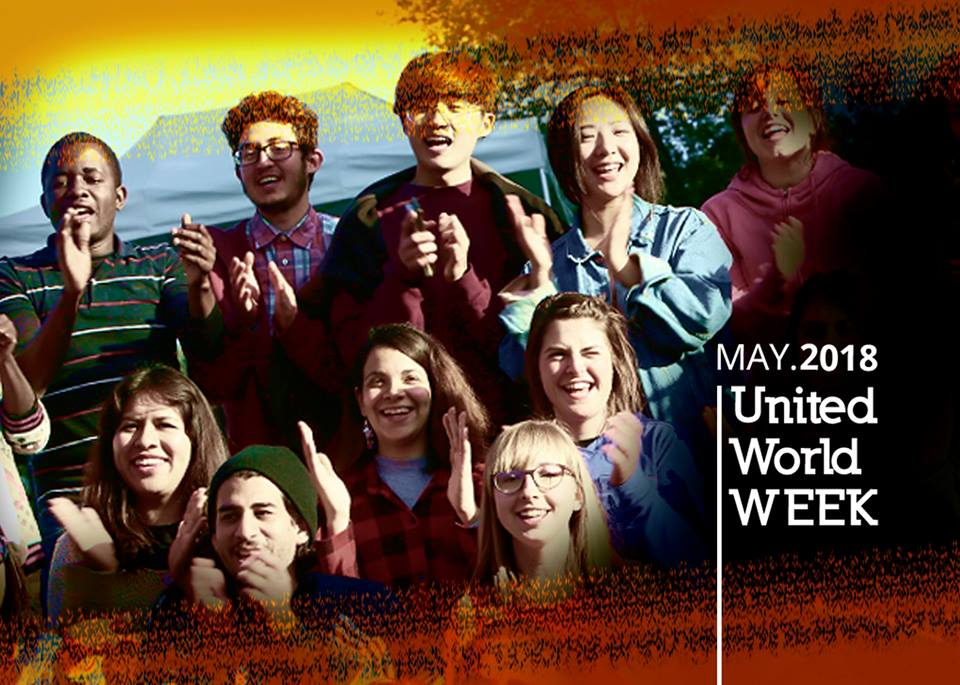 United World Week, which will begin right after, will be a single event located in different places around the world. It is an international expo that is an integral part of the United World Project, which for more than twenty years – the first edition in 1995 – returns every year at this time to promote peaceful relations and exchange among peoples and cultures, especially among the poor, marginalized and lonely, but not with out the help of famous people from the worlds of culture, sport, civil society and religion. Over time, United World Week gained ground on the local, national and supranational levels of public opinion through the social and mass media, and its projects in favor of brotherhood. The 2018 edition will focus on the topic “Generation Zero Hunger” one of 17 sustainable development objectives contained in the Agenda approved by the member States of the United Nations, to be reached by 2030. The teenagers and young people of the Focolare Movement have long been engaged in offering an important contribution to the project being brought forward by the Food and Agriculture Organization of the United Nations (FAO), with regard to things such as malnutrition, wasting food, respect for Nature and personal and collective projects geared towards the responsible use of the earth and its resources. Hence, the Week will be an opportunity to show the results of this collaboration and to engage other teenagers, citizens and institutions in reaching the goal. At the conclusion, on May 6th, the Run for Unity relay race will be held with hundred and thousands of teenagers of all nationalities, religions, cultures and ethnic groups. It will cover the earth, offering a testimony of “fraternity” from East to West. At every stop along the run – on foot or on bike – the most counter-current relay that exists will be enriched with sporting events, games, acts of solidarity and whatever else can help to bear witness that the dream of a united world lives on, in spite of the tensions or signs to the contrary. Perhaps these kids will be among the main actors. Chiara Favotti
United World Week, which will begin right after, will be a single event located in different places around the world. It is an international expo that is an integral part of the United World Project, which for more than twenty years – the first edition in 1995 – returns every year at this time to promote peaceful relations and exchange among peoples and cultures, especially among the poor, marginalized and lonely, but not with out the help of famous people from the worlds of culture, sport, civil society and religion. Over time, United World Week gained ground on the local, national and supranational levels of public opinion through the social and mass media, and its projects in favor of brotherhood. The 2018 edition will focus on the topic “Generation Zero Hunger” one of 17 sustainable development objectives contained in the Agenda approved by the member States of the United Nations, to be reached by 2030. The teenagers and young people of the Focolare Movement have long been engaged in offering an important contribution to the project being brought forward by the Food and Agriculture Organization of the United Nations (FAO), with regard to things such as malnutrition, wasting food, respect for Nature and personal and collective projects geared towards the responsible use of the earth and its resources. Hence, the Week will be an opportunity to show the results of this collaboration and to engage other teenagers, citizens and institutions in reaching the goal. At the conclusion, on May 6th, the Run for Unity relay race will be held with hundred and thousands of teenagers of all nationalities, religions, cultures and ethnic groups. It will cover the earth, offering a testimony of “fraternity” from East to West. At every stop along the run – on foot or on bike – the most counter-current relay that exists will be enriched with sporting events, games, acts of solidarity and whatever else can help to bear witness that the dream of a united world lives on, in spite of the tensions or signs to the contrary. Perhaps these kids will be among the main actors. Chiara Favotti
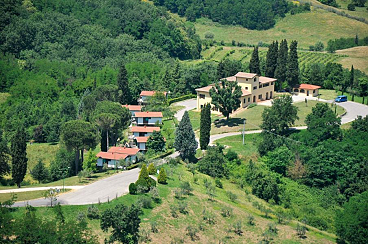
The gospel lived: from death to life
I was born in Trentino, a region of northern Italy, 67 years ago. During my adolescence, my only interests were music and art. Because of the constant arguments with my parents, I soon left school and home. A guitar, long hair, my band: this became my world. With some friends we formed a commune where we lived, playing and dreaming together. It was a place of passage, where hashish circulated. I met Anna there when I was twenty years old, and in the joy and recklessness of youth she became my partner. She occasionally used heavy drugs as well. To help her quit, I made a gesture which I later regretted bitterly: I tried them too. It was the beginning of a downwards slope that day after day led us into a bottomless pit, and the humiliation of having to find increasingly strong doses. There followed years of fear, and the alternation of euphoria, withdrawal symptoms, hospital admissions and continuous relapses. And then prison. After serving my time, we decided to leave for India to learn how to play the Tabla, a typical percussion instrument. India fascinated us, to the point of making us forget the West and its materialism, and we were able to stay away from drugs. When we returned, the impact was very hard. Italy at that time was paralyzed by political terrorism. Bewildered, we found comfort again in the arms of heroin, which helped us not to think. In an even more ruthless way, we were sucked once more into the vortex of drug addiction. Years of physical and moral decline followed. Until we reached a dramatic crossroad: madness or death. I returned to India to detoxify myself. But I went alone, so that we would not condition one another and fall back again. When I returned to Italy, I accepted, reluctantly, to stay with an uncle in Tuscany. It was the turning point. Strangely, I felt accepted and respected by him like one of the family. What animated the life of his family was the idea that God is Love, that he loves everyone personally and without conditions. This idea began to fascinate me too. On 1 May 1982, I went to Loppiano with my cousins for a meeting of young people from all over the world. Ever more convinced of wanting to make this life my own, I tried to remain in close contact with the inhabitants of the little town, who, as I discovered, had adopted the Gospel as the basis of their lives.  I wanted to tell Anna about what had happened to me, and I went to Trentino to see her. Her reaction was understandably harsh, she felt betrayed. After a few months, she wrote me a letter. She was in prison, and she wanted to see me. I thanked God: from the bottom the only place to go is upwards. “Use me as an instrument for her redemption!”, I prayed. Every week I went to see her and talk to her. After she had served her time, after a year and a half, we began a new life together, constantly helped by our new family, the Focolare. The desire grew in us to get married in church. Life became calmer and more secure, and was enriched by the arrival of two daughters. Anna qualified as a nurse. But after some time, she lost her head for a colleague at work. She asked me for a separation. After struggling in vain to avoid the breakup, I found an apartment and went to live alone. Then came the first signs of an increasingly serious liver disease, which eventually required a transplant. The doctors said that I had only a few weeks to live and admitted me immediately. The time spent in hospital was precious, as I tried to prepare my soul, fixing it in God alone, with daily acts of love for the other patients, especially the loneliest ones. A compatible liver was found and the transplant was carried out. The outcome was above expectations, and after some time I was discharged. Two years ago I received a phone call: Anna was asking me to look after our daughters, because she was to be hospitalized. I rushed to her side. The diagnosis of a terminal condition had unexpectedly brought the family together. We forgave each other, grateful to be able to make this last stretch of her journey together. In her final moments, while I slowly whispered “Hail Mary” in her ear, she occasionally accompanied my prayer with a sigh. We had never prayed together before. During the final words of the “Haily holy queen” … “and after this our exile show us…Jesus” .., Anna flew to Heaven. (S. B. – Italia)
I wanted to tell Anna about what had happened to me, and I went to Trentino to see her. Her reaction was understandably harsh, she felt betrayed. After a few months, she wrote me a letter. She was in prison, and she wanted to see me. I thanked God: from the bottom the only place to go is upwards. “Use me as an instrument for her redemption!”, I prayed. Every week I went to see her and talk to her. After she had served her time, after a year and a half, we began a new life together, constantly helped by our new family, the Focolare. The desire grew in us to get married in church. Life became calmer and more secure, and was enriched by the arrival of two daughters. Anna qualified as a nurse. But after some time, she lost her head for a colleague at work. She asked me for a separation. After struggling in vain to avoid the breakup, I found an apartment and went to live alone. Then came the first signs of an increasingly serious liver disease, which eventually required a transplant. The doctors said that I had only a few weeks to live and admitted me immediately. The time spent in hospital was precious, as I tried to prepare my soul, fixing it in God alone, with daily acts of love for the other patients, especially the loneliest ones. A compatible liver was found and the transplant was carried out. The outcome was above expectations, and after some time I was discharged. Two years ago I received a phone call: Anna was asking me to look after our daughters, because she was to be hospitalized. I rushed to her side. The diagnosis of a terminal condition had unexpectedly brought the family together. We forgave each other, grateful to be able to make this last stretch of her journey together. In her final moments, while I slowly whispered “Hail Mary” in her ear, she occasionally accompanied my prayer with a sigh. We had never prayed together before. During the final words of the “Haily holy queen” … “and after this our exile show us…Jesus” .., Anna flew to Heaven. (S. B. – Italia)
The Armenian genocide
103 years ago, this huge tragedy was the first on the deplorable list of disasters that occurred in the 20th century: the Armenian genocide. Recalling it, in 2016, Pope Francis made an appeal: “Having seen the pernicious effects to which hatred, prejudice and desire for dominion led in the last century, I express my lively hope that humanity will learn from those tragic experiences the need to act with responsibility and wisdom to avoid the danger of a return to such horrors. May all join in striving to ensure that whenever conflicts emerge between nations, dialogue, the enduring and authentic quest of peace, cooperation between states and the constant commitment of international organizations will always prevail, with the aim of creating a climate of trust favourable for the achievement of lasting agreements that look to the future”.
Nomadelfia and the law of fraternity
Nomadelfia rises amid the hills of Mediterranean countryside, south of Tuscany (Grosseto, Italy). There are 300 inhabitants who have chosen the evangelical law of fraternity as their “rule.” This explains its name, a neologism concocted by the combination of the Greek terms nomos and adelphia that mean “brotherhood is law.” “We want to demonstrate that the Gospel can be lived on a social scale, by giving oneself entirely to the others and implementing those principles of justice and fraternity which we chose to abide by, on a path of the sharing of faith and life,” recounted Francesco Matterazzo, current president of the community. The town is structured into 12 family groups, composed of about 25-30 people. They have a communion of goods, there is private property, and money does not circulate. Work is taken as an act of love for the other and the families are willing to foster children. For the Catholic Church, Nomadelfia is a parish composed of families, single laity and priests who share an experience that recalls that of the first communities of the faithful, precisely a stone’s throw from the Etruscan-Roman town of Roselle, an ancient Episcopal seat. Its origin, however, comes from Northern Italy, from the city of Carpi. It was there that around the 1930s, Fr Zeno Saltini started to gather abandoned children and raise them as sons, thus founding the Work of the Little Apostles. Soon other priests joined him, and also Irene, a young student who offered to act as mother to those children. With the approval of the Bishop, Fr. Zeno entrusted the smaller children to her, launching a new consecration path in the Church, that of the “mothers by vocation.” With the end of the war, also many families joined up with Fr. Zeno, who were willing to gather the war orphans and raise them as their very own. On 14 February 1948, the entire community approved the text of a Charter, which was signed at the altar: so the Work of the Little Apostles became Nomadelfia. After a series of adventurous trials, the “Nomadelfians” found a home suitable for the development of the community in the city of Grosseto, in an estate donated by the daughter of a renowned Italian businessman. “Our mission today has not changed,” explains Francesco Matterazzo. “In an ever more connected world that develops new instruments for communication and unity, there are other coexisting realities that deny the dignity of the other and build walls… this is why I think that the proposal of a path of brother is important for mankind more than ever! Here in Nomadelfia, families, priests and singles can share a daily more suited to humanity’s natural aspirations for superior values like love, friendship, prayer and contemplation, and socially richer due to the variety of experiences and range of ages.”
22 April 2018: Official visit to the international centre of the Focolare Movement in Rocca di Papa (Rome). ©CSC Audiovisivi
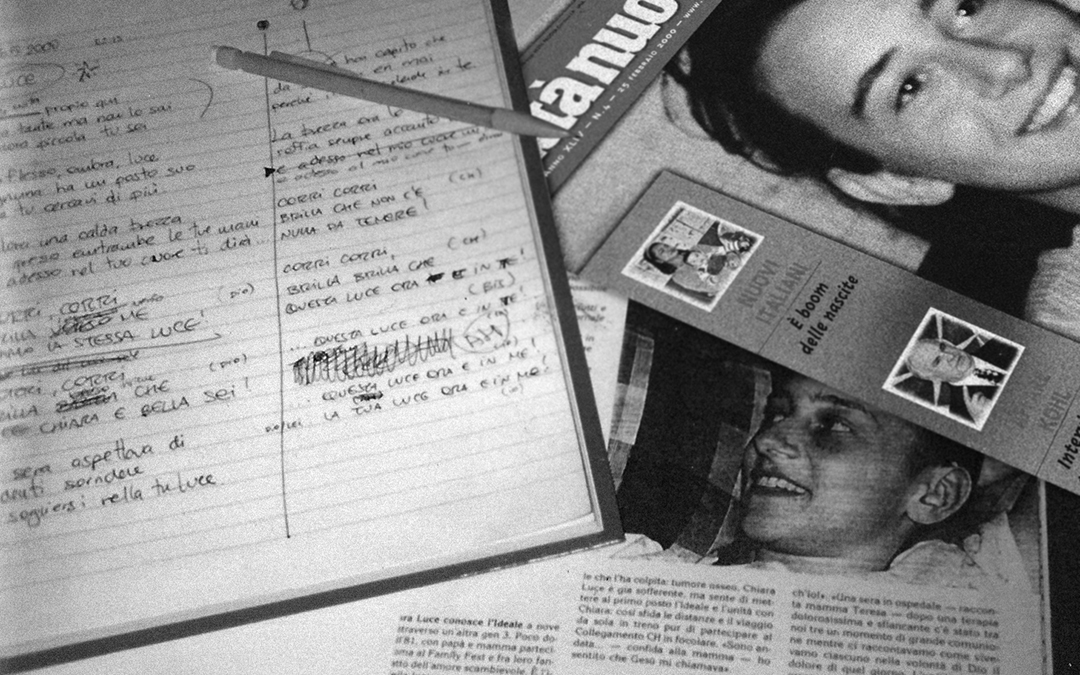
Genfest 2000: a wave of “Light”
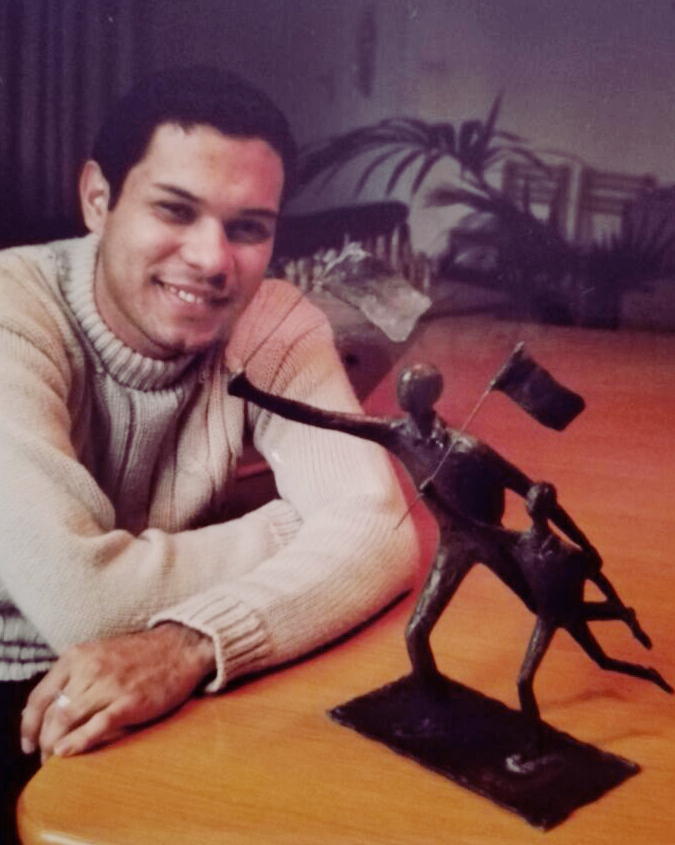 “Eighteen years have passed but the effect of that event still moves all of us who were there. I arrived in Rome on December 1999, a few months before. For me it was the start of a new period during which I worked as a graphic technician at the international Gen Centre, in preparation for the Genfest. I would never have imagined what surprises were in store for me that year! One day in February while I was strumming on my guitar, I thought of Chiara “Luce” Badano, a gen like us, who died 10 years earlier, and in her last moments of life had offered her pain for the success of the Genfest. I still can’t explain how I got the inspiration to compose a song dedicated precisely to her: “Run, run, tell me there’s nothing to fear. Run, run, shine, shine since your light is now in me.” I couldn’t but entitle the song: “Luz”, light. The next day in Loppiano, there was a series of meetings with the group in charge of the music. We had to choose four official songs for the Genfest. A bit nervous, I proposed also that song, and sang it in front of everyone. “Light” was chosen and since then, up to this day, it has been translated into various languages, and has become the symbol of an experience which many young people have made their own, following the example of Chiara Badano, who in 2010 had been proclaimed blessed. After some time her parents, Maria Teresa and Ruggero, upon hugging me said, “You found the best way to make her known, since one who sings, prays twice!”
“Eighteen years have passed but the effect of that event still moves all of us who were there. I arrived in Rome on December 1999, a few months before. For me it was the start of a new period during which I worked as a graphic technician at the international Gen Centre, in preparation for the Genfest. I would never have imagined what surprises were in store for me that year! One day in February while I was strumming on my guitar, I thought of Chiara “Luce” Badano, a gen like us, who died 10 years earlier, and in her last moments of life had offered her pain for the success of the Genfest. I still can’t explain how I got the inspiration to compose a song dedicated precisely to her: “Run, run, tell me there’s nothing to fear. Run, run, shine, shine since your light is now in me.” I couldn’t but entitle the song: “Luz”, light. The next day in Loppiano, there was a series of meetings with the group in charge of the music. We had to choose four official songs for the Genfest. A bit nervous, I proposed also that song, and sang it in front of everyone. “Light” was chosen and since then, up to this day, it has been translated into various languages, and has become the symbol of an experience which many young people have made their own, following the example of Chiara Badano, who in 2010 had been proclaimed blessed. After some time her parents, Maria Teresa and Ruggero, upon hugging me said, “You found the best way to make her known, since one who sings, prays twice!” 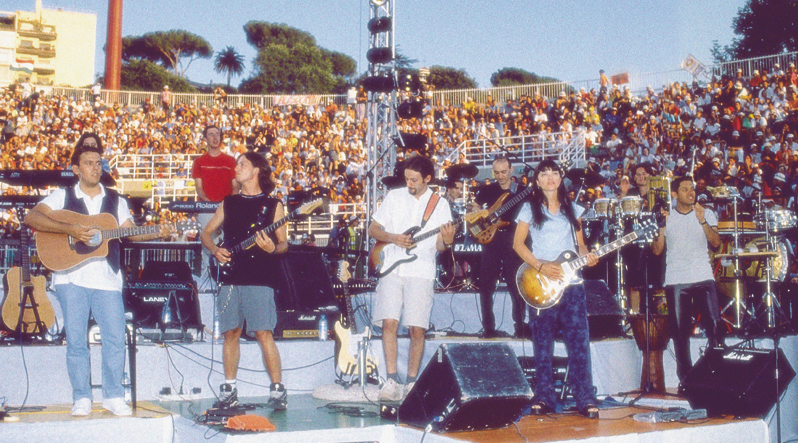 That Genfest, the first organized entirely by us youth, was a real challenge, an experience of maturity and unity among us. When the time came to choose a logo, I proposed the motion of a wave which would continue through time. And another gift was that also that logo was chosen! All was ready on 17 August. Early that morning we were already onstage for the sound check and the last details. Before the start, 25,000 people were queueing to enter the Stadium. Three, two, one… with a percussion of various rhythms and a subtle and unceasing sound, like a heartbeat, finally what we had prepared for months began. It was a varied programme to demonstrate to the youth worldwide that unity is possible. At around 6.30 pm it was my turn, with a song I had composed in Costa Rica four years earlier (“A smile is enough”).
That Genfest, the first organized entirely by us youth, was a real challenge, an experience of maturity and unity among us. When the time came to choose a logo, I proposed the motion of a wave which would continue through time. And another gift was that also that logo was chosen! All was ready on 17 August. Early that morning we were already onstage for the sound check and the last details. Before the start, 25,000 people were queueing to enter the Stadium. Three, two, one… with a percussion of various rhythms and a subtle and unceasing sound, like a heartbeat, finally what we had prepared for months began. It was a varied programme to demonstrate to the youth worldwide that unity is possible. At around 6.30 pm it was my turn, with a song I had composed in Costa Rica four years earlier (“A smile is enough”).  The story of Chiara “Luce” Badano was presented as an example of holiness at the mere age of 18, while images of her luminous and smiling face was projected on the big screen, creating an absolute silence in the audience. We seemed to be living a moment of eternity. Immediately after, the first chords of “Luz” resounded. Lastly, the most expected moment was the proposal of Chiara Lubich: “The idea of a more united world, for which many young people are battling, will not be just a utopia, but will become with time, an immense reality. And the future is above all in your hands.” Then came the launching of “Project Africa.” But it didn’t end there. We still were waiting for the big meeting of the World Youth Day with John Paul II, on 19 and 20 August in the nearby field of Tor Vergata. It was another historical day with two million young people, despite the heat of the day and cold of the night which didn’t wipe out their joy of being together. Also unforgettable was the Pope’s exhortation: “Do not be afraid of being the saints of the Third Millennium.” Before returning to Costa Rica, in December that year I had the chance to greet Chiara Lubich in person and give her a memoir of that magical experience lived that year: a tiny booklet. But the gifts didn’t end there for me: after many years I met Tina, an Austrian girl, who like me had participated in that Genfest. She has now become my wife!”.
The story of Chiara “Luce” Badano was presented as an example of holiness at the mere age of 18, while images of her luminous and smiling face was projected on the big screen, creating an absolute silence in the audience. We seemed to be living a moment of eternity. Immediately after, the first chords of “Luz” resounded. Lastly, the most expected moment was the proposal of Chiara Lubich: “The idea of a more united world, for which many young people are battling, will not be just a utopia, but will become with time, an immense reality. And the future is above all in your hands.” Then came the launching of “Project Africa.” But it didn’t end there. We still were waiting for the big meeting of the World Youth Day with John Paul II, on 19 and 20 August in the nearby field of Tor Vergata. It was another historical day with two million young people, despite the heat of the day and cold of the night which didn’t wipe out their joy of being together. Also unforgettable was the Pope’s exhortation: “Do not be afraid of being the saints of the Third Millennium.” Before returning to Costa Rica, in December that year I had the chance to greet Chiara Lubich in person and give her a memoir of that magical experience lived that year: a tiny booklet. But the gifts didn’t end there for me: after many years I met Tina, an Austrian girl, who like me had participated in that Genfest. She has now become my wife!”.
Sandro Rojas Badilla
Listen to: “Basta un sorriso” Listen to: “Luz” Photo: Sandro Rojas Badilla

